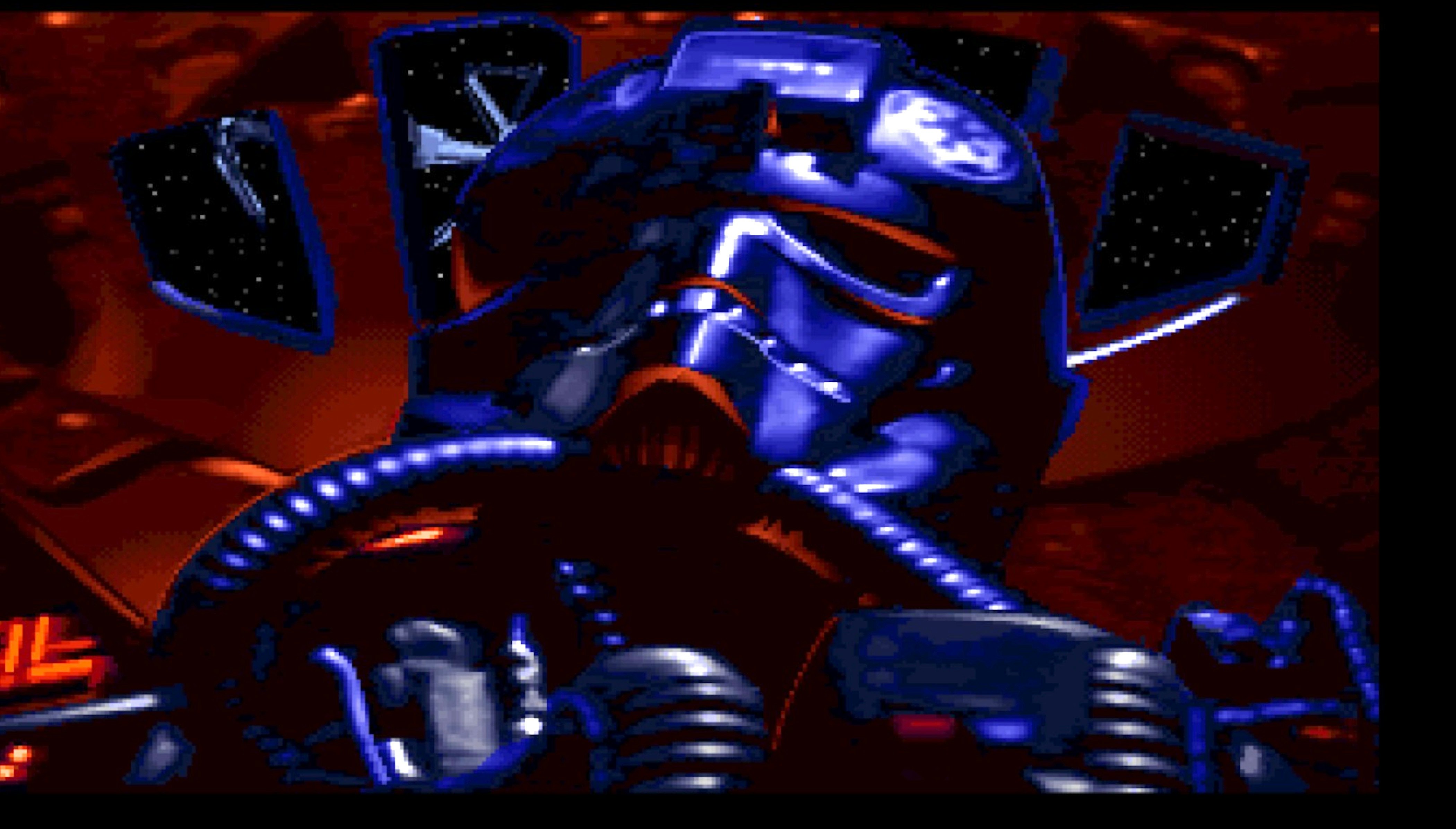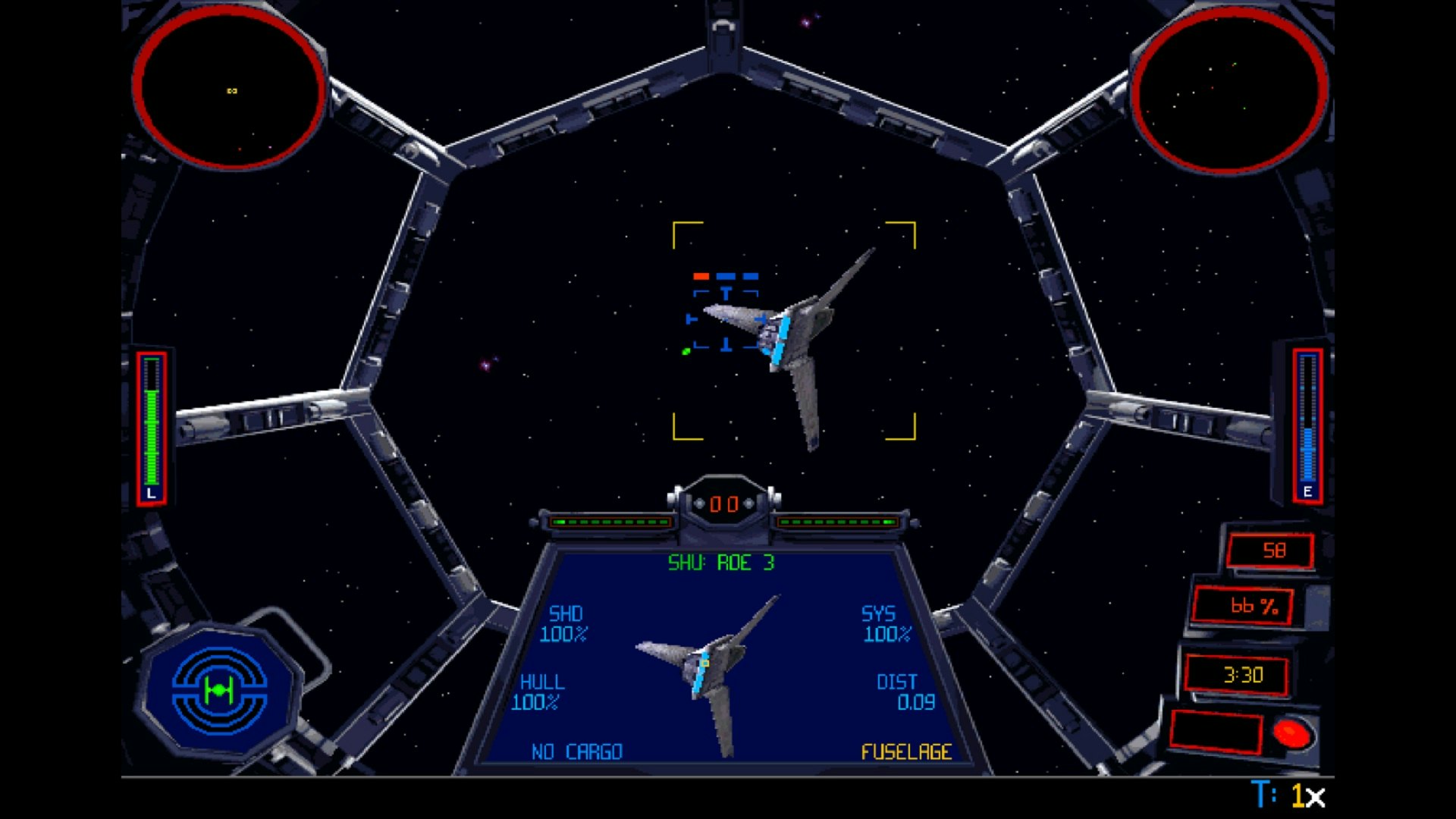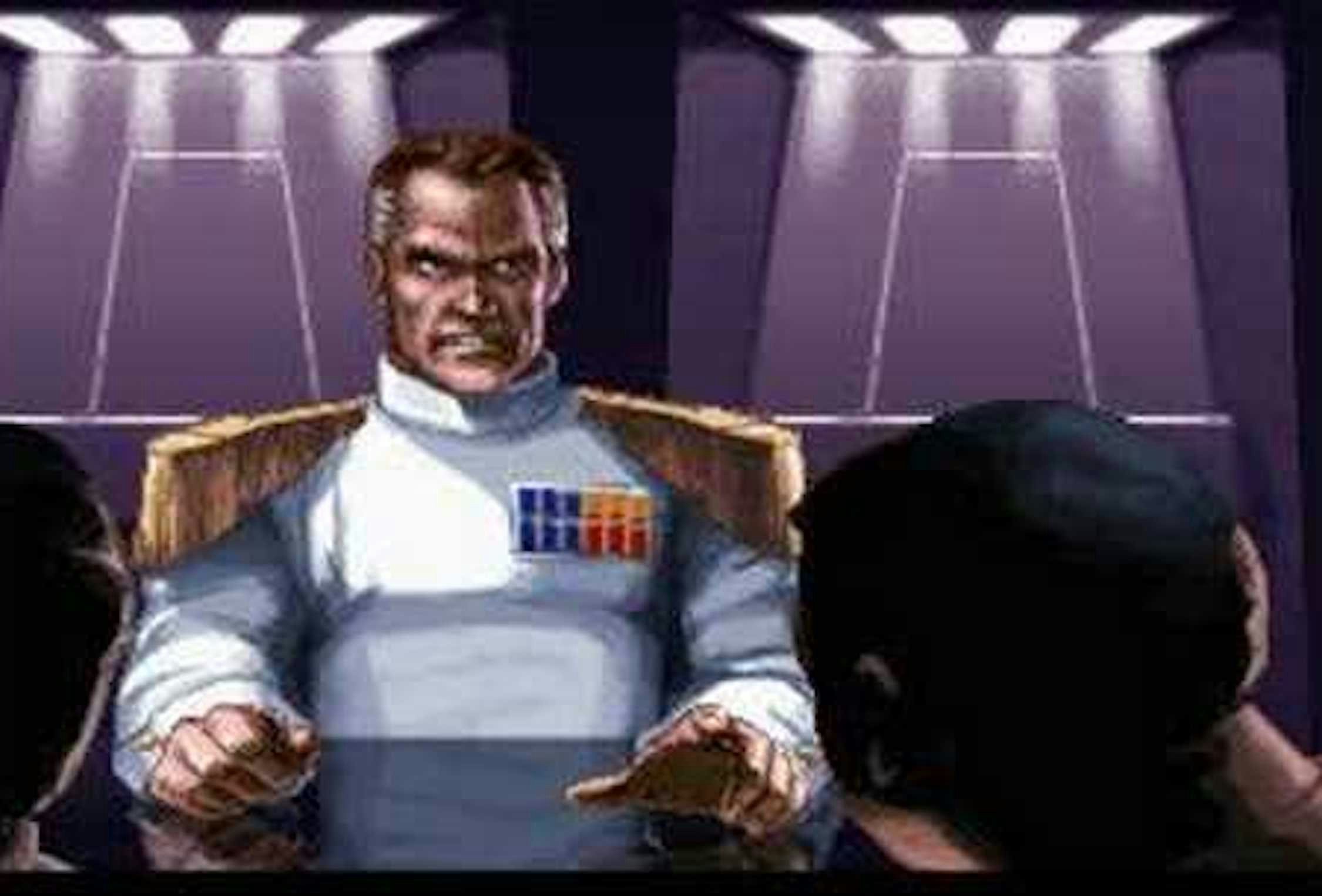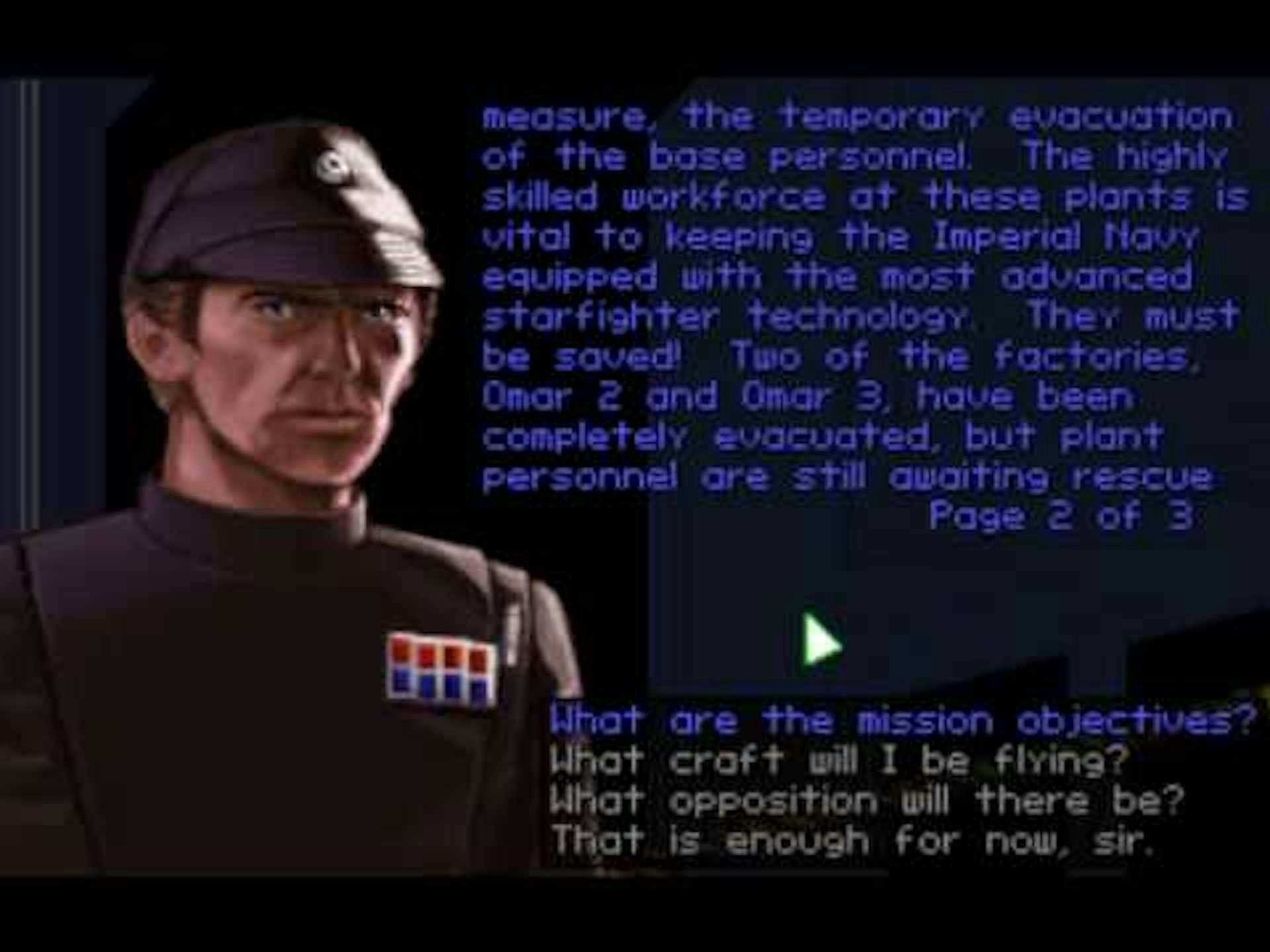
Turning to the Dark Side of the Force often seems very cool. If you can avoid the health problems of Darth Vader and become a slick evil-doer like Count Dooku, Kylo Ren, Asajj Ventress, Shin Hati, or, the Stranger from The Acolyte, the quick and easy path in Star Wars clearly has its perks. But although folks with red lightsabers take the lion’s share of baddies in Star Wars, the truth is, to carry out the will of the Emperor (or Supreme Leader) you must have loyal soldiers. While Star Wars has done quite a bit in recent years to unpack the lives of Stormtroopers, 30 years ago the franchise did something super-risky. Sure, you can join the Dark Side. But you’re not going to be Sith Lord or even a Stormtrooper.
Instead on July 20, 1994, LucasArts dropped gamers into the cockpit of the worst kind of starfighter in the galaxy far, far away. With TIE Fighter, the point-of-view isn’t a nifty evildoer or even a decision-maker for the Empire. This time, you’re one of those masked pilots inside of a TIE Fighter, about to be blasted out of the sky by X-wings. Three decades later, TIE Fighter feels like the most subversive Star Wars experience ever.
A better flight experience

Taking a peek behind-the-scenes, the creation of TIE Fighter wasn’t really risky or difficult. After LucasArts created the basic engine for flight simulation in the groundbreaking 1993 game X-Wing, the stage was set for a sequel. So rather than just doing a technologically smoother version of X-Wing right away, the game just has you switch sides. Visually, TIE Fighter looked better than X-Wing, mostly because it employed Gouraud shading, an aspect of 3-D rendering that made various objects look like they had more depth.
While it's feasible that a modern gamer may not notice this improvement in the actual gameplay of TIE Fighter, it was an important improvement, one which retroactively made some of the ships in X-Wing seem flatter in comparison. Metaphorically this is, of course, hilarious. Leave it to the better-resourced and ruthlessly scheming Empire to create a slightly more convincing Star Wars flight simulator game.
That said, TIE Fighter is also a much harder game than X-Wing, at least in retrospect, mostly because, at first, the nature of your missions is less clear and TIE fighters themselves are famously more fragile. (No shields!) So if you beat this game thirty years ago, or you beat this game today, there’s a chance that you could easily be recruited — Last Starfighter-style — for actual TIE Fighter duty.
For the Empire!

Like many games of the era, TIE Fighter presents a kind of unintentional dystopic workplace setting. You begin basically as a lowly pilot, getting sent on thankless solo missions to find remaining Rebels who may have escaped from the Hoth base in The Empire Strikes Back. You log onto the game, you get your orders for the day, navigate past a few hallways, get your mission assignment, and then you’re out there in space, trying not to knock your nimble ship into anything and get blown-up. Yes, you do get some slightly better, non-canon ships later in the game, but your normal selections of craft are exactly what you’d expect from the films: regular TIE Fighters, TIE Interceptors, and TIE Bombers. The sturdiest of these ships is the “Assault Gunboat,” which basically feels like the game designers creating something more like the B-Wing, but for the Empire instead of the Rebellion.
While there are straight-up suicide runs in certain large missions, one of the most unrealistic, and canon-shattering ideas is the mercy of the Imperials when you crash your ship in early missions. A cutscene appears, depicting you getting whisked away for medical treatment. Do we really think the Empire would do this? Rescue their TIE Fighter pilots and then just send them out again?

Playing TIE Fighter today is fun, but because working for the Empire feels more like a corporate job than a fun gig with the space navy, there’s some aspect to this game that’s accidentally reminiscent of Severance; in real life, your sympathies would never be with the oppressive Empire, and so, you kind of have to compartmentalize your brain in order to do your job in this game. TIE Fighter isn’t like Andor, it doesn’t attempt to change our feelings about the Rebels by making them seem more aggressive and amoral. If anything, TIE Fighter doubles down on the nitty-gritty inhumanness of the Imperial Navy. This makes the basic gaming experience both amusing and super-dark at the same time. The better you get at the game, the stronger the Empire becomes. It’s not exactly an alternate timeline of Star Wars, but TIE Fighter is, three decades later, one of the best examples of how the world-building in a galaxy far, far away works.
In A New Hope, Luke Skywalker says “It’s not like I like the Empire, I hate it, but there’s nothing I can do about it right now.” Interestingly, Luke also wanted to go to the Imperial Academy to learn how to be a pilot. And if you squint, TIE Fighter presents the best version of what that alternate path might have actually looked like. If Uncle Owen had let Luke go off to the academy, he could have very well been the player in this game, firing off green blasts that decimate countless Rebels.







